There’s an African-American, a Lutheran called Stephen Carter who tells a story in one of his books. It’s a fascinating story and a perfect illustration of what it is to live the responsible life. I gather in the early 1960s, Washington was quite a racially segregated city. There were predominantly white neighbourhoods, predominantly black neighbourhoods, and he tells the story of how, as a young boy, he and his family moved into a white area of Washington where they were the first black family.
He says, “Our first morning in the neighbourhood, we sat on the front steps to see how people would welcome us. They didn’t. They didn’t even look at us. It was as if we were invisible. And I felt to myself, we should never have come here. We will never belong here. And while I was thinking those thoughts, a lady on the opposite side of the street, her arms laden with shopping, turned towards us and gave us some enormous smile and a wave. Then she disappeared into her house opposite where we were living. And then a few moments later, she came out with a tray laden with drinks and cookies, and came over to me and my brothers and sisters and said, ‘How wonderful to have you here.’ That moment changed my life. And it taught me that I could belong here.”
That lady, he says, whose name was Sara Kestenbaum, and who died all too young was an Orthodox Jewish lady. He said, “Jews have a word for this kind of thing. They call it chesed, meaning kindness, especially to strangers, and especially when it’s hard. That moment changed my life.” Now, I didn’t know the late Sara Kestenbaum. Although when I told this story in a synagogue in Washington, the people said to me, “Oh yes, of course, Sara Kestenbaum used to be a member here. We don’t know that story, but yes, that’s the kind of thing Sara used to do.”
And that was when I thought of a remarkable teaching that you find in the Talmud, codified by Maimonides that says, “Act as if your next act could change the future of the world.” And I thought to myself, “What a crazy idea. How can any of us change the future of the world? We are only one of 6 billion people on the face of this planet. We are a wave in the ocean, a grain of sand on the seashore, dust on the surface of infinity.”
And then suddenly, reading that story from Stephen Carter told me, we say, nefesh olam ke’echad maleh. One life is like a universe. Change a life and you begin to change the universe. That young African-American boy is today Professor of Law at Yale University. And he is what he is, as he says, because of one small act of kindness by one lady called Sara Kestenbaum. Never, ever think that we can’t change the world. We can, one day at a time, one life at a time, one act at a time. And that is the only way you change the world.
SHARE
More from JInsider
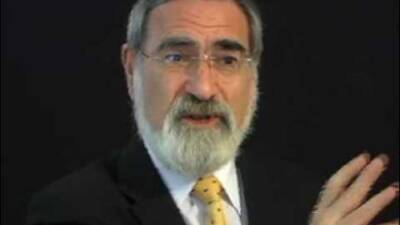
Rabbi Sacks on the Jewish Narrative
JInsider (March 2010)
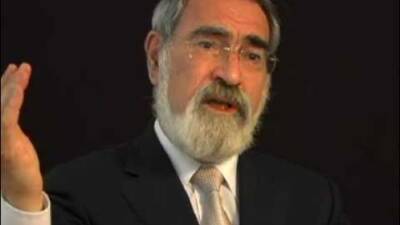
Rabbi Sacks on Future Tense Take Aways: Part 1
JInsider (March 2010)
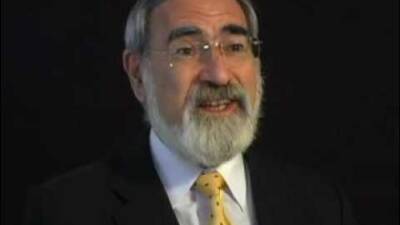
Rabbi Sacks on Future Tense Take Aways: 2
JInsider (March 2010)
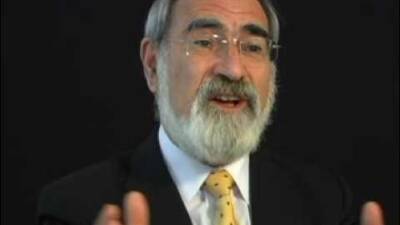
Rabbi Sacks on the Universal Jewish Story
JInsider (March 2010)
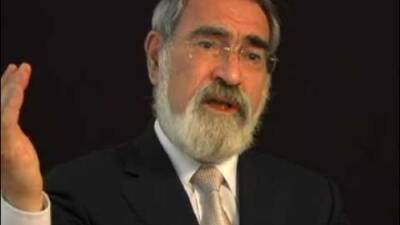
Rabbi Sacks on Eco-Judaism Roots
JInsider (March 2010)
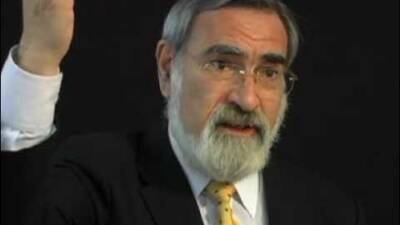
Rabbi Sacks on Peoplehood
JInsider (March 2010)
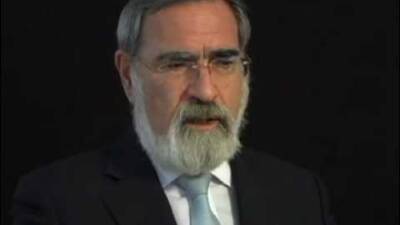
Rabbi Sacks on an Engaged Judaism
JInsider (March 2010)
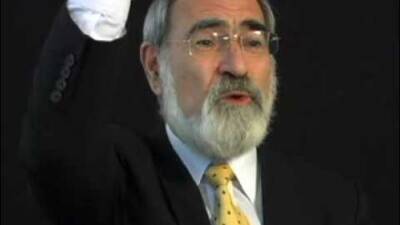
Rabbi Sacks on Charity Priorities
JInsider (March 2010)
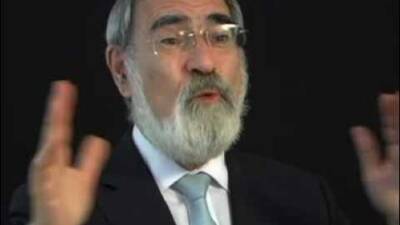
Rabbi Sacks on a Responsible Life
JInsider (March 2010)
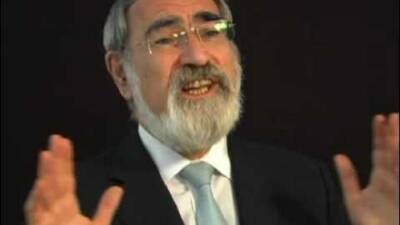
Rabbi Sacks on Reconciliation
JInsider (March 2010)
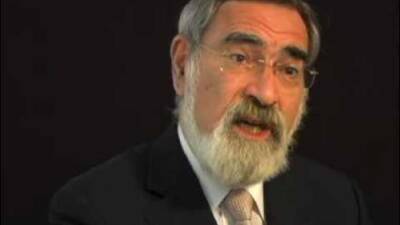
Rabbi Sacks on Community Conflict
JInsider (March 2010)
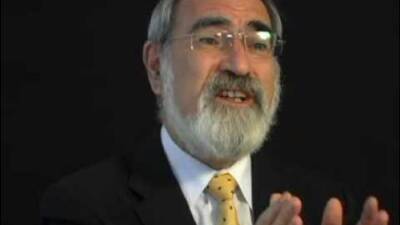
Rabbi Sacks on Particularism vs Universalism
JInsider (March 2010)
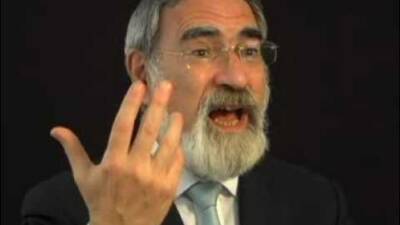
Rabbi Sacks on a Culture of Hope
JInsider (March 2010)
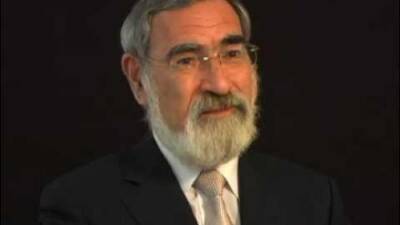
Rabbi Sacks on his Personal Hatikvah
JInsider (March 2010)
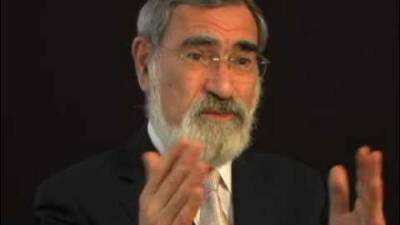
Rabbi Sacks on Israel and Jewish Society
JInsider (March 2010)
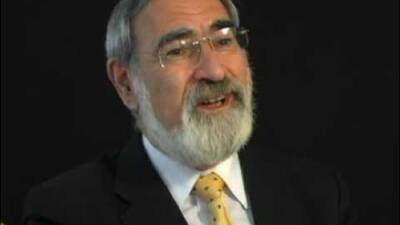
Rabbi Sacks on Torah in Today's World
JInsider (March 2010)
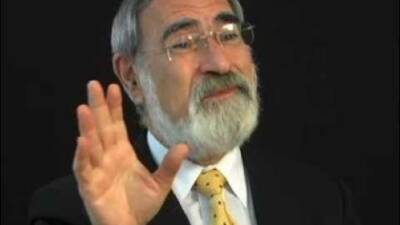
Rabbi Sacks on Prayer
JInsider (March 2010)
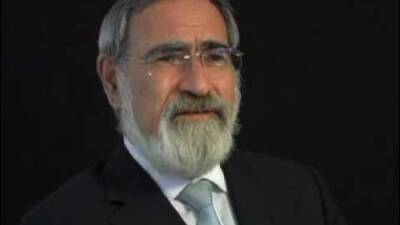
Rabbi Sacks on Indifference
JInsider (March 2010)
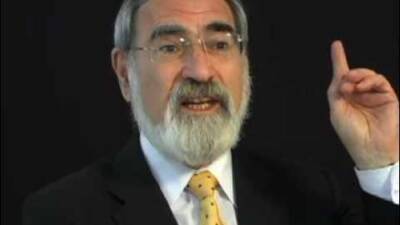
Rabbi Sacks on the Jewish Role in the World
JInsider (March 2010)
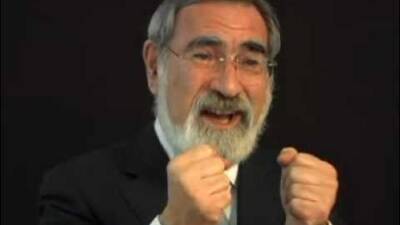
Rabbi Sacks on Torah and the Real World
JInsider (March 2010)
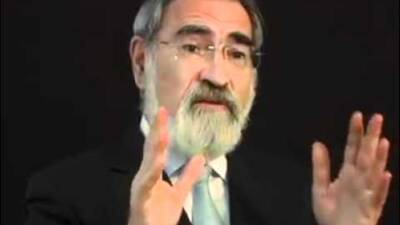
Rabbi Sacks on Free Market and Judaism
JInsider (March 2010)
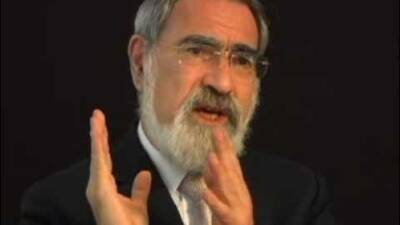
Rabbi Sacks on Antisemitism
JInsider (March 2010)
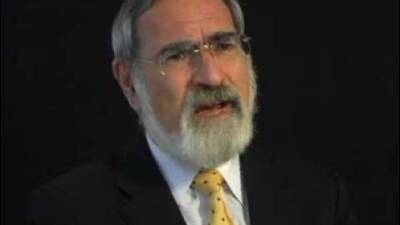
Rabbi Sacks on Future Tense
JInsider (March 2010)
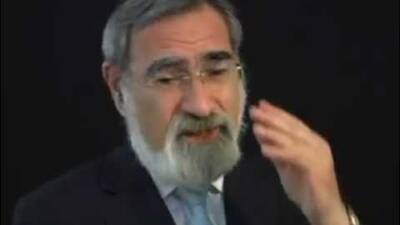
Rabbi Sacks on Love as Deed
JInsider (March 2010)
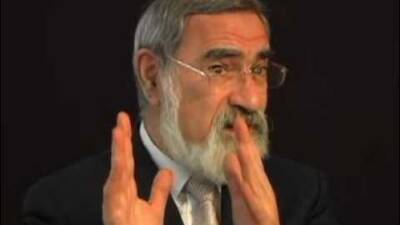
Rabbi Sacks on Combatting Antisemitism
JInsider (March 2010)
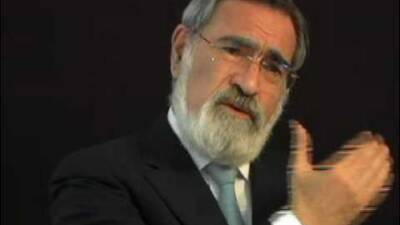
Rabbi Sacks on Material Loss
JInsider (March 2010)
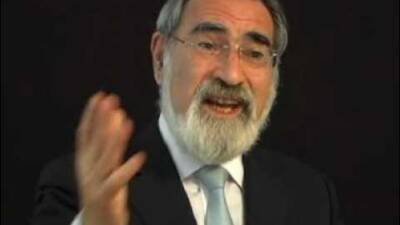
Rabbi Sacks on the Antidote to Materialism
JInsider (March 2010)
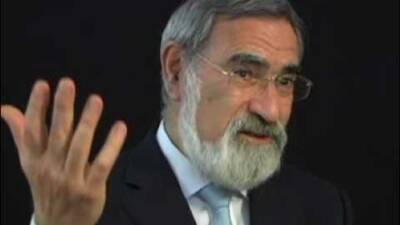
Rabbi Sacks on Parenting
JInsider (March 2010)
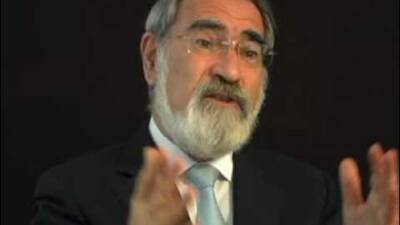
Rabbi Sacks on a Tzedakah Tale
JInsider (March 2010)
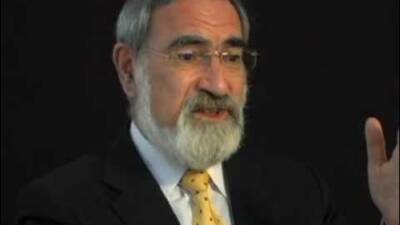
Rabbi Sacks on a Family Story
JInsider (March 2010)
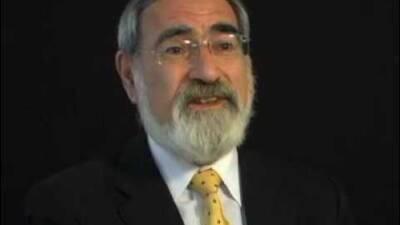
On the Internet and Judaism
JInsider (March 2010)
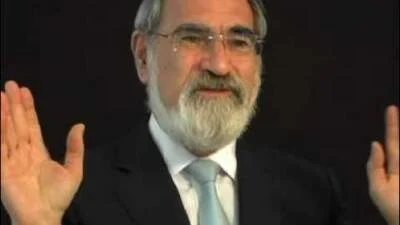
Rabbi Sacks on Plato's Ghost
JInsider (March 2010)
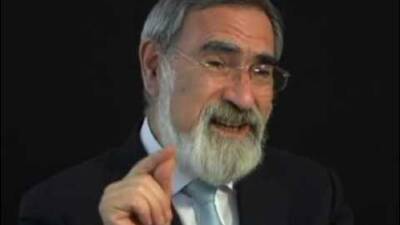
Rabbi Sacks on Optimism vs. Hope
JInsider (March 2010)
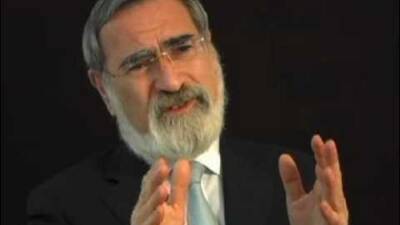
Rabbi Sacks on Victim Mentality
JInsider (March 2010)
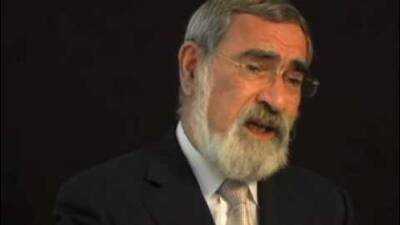
Rabbi Sacks on Jerusalem
JInsider (March 2010)
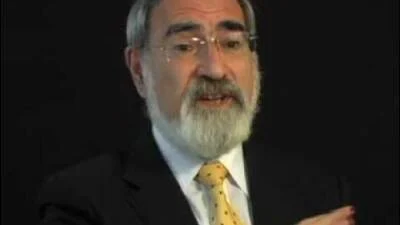
Rabbi Sacks on Advice for our Times
JInsider (March 2010)
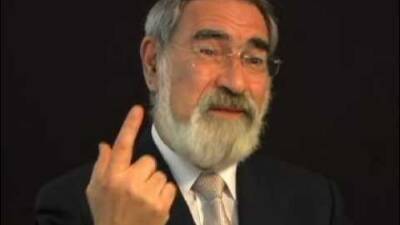
Rabbi Sacks on Fundamentalism
JInsider (March 2010)
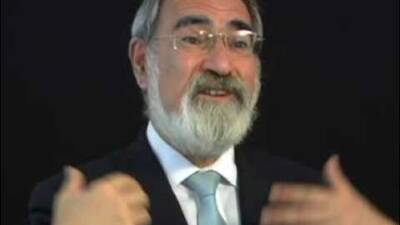
Rabbi Sacks on Time
JInsider (March 2010)
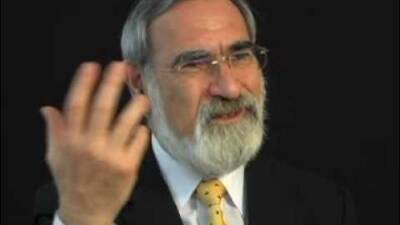
Rabbi Sacks on the Chosen People
JInsider (March 2010)
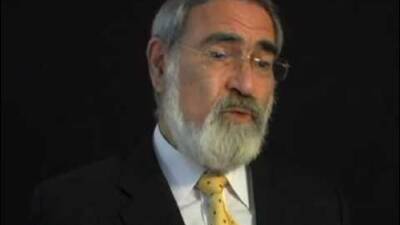
Rabbi Sacks on 21st Century Israel
JInsider (March 2010)
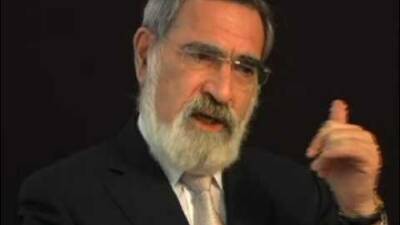
Rabbi Sacks on the Origins of Antisemitism
JInsider (March 2010)
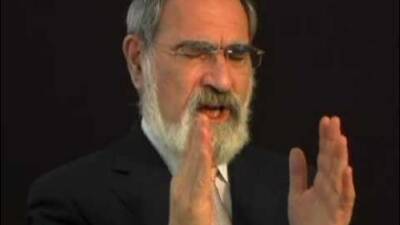
Rabbi Sacks on Understanding Jewish Exile
JInsider (March 2010)
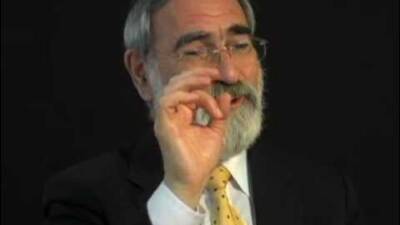
Rabbi Sacks on Anger
JInsider (March 2010)
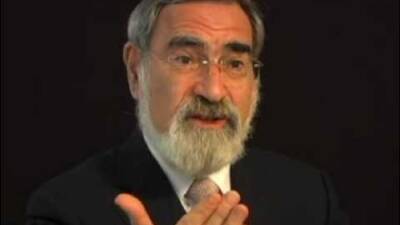
Rabbi Sacks on the Historical Evolution of Antisemitism
JInsider (March 2010)
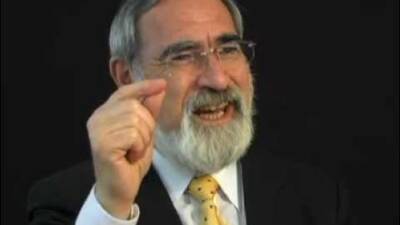
Rabbi Sacks on Interfaith Relations
JInsider (March 2010)
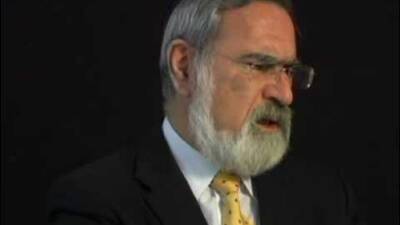
Rabbi Sacks on Coincidence and Providence
JInsider (March 2010)
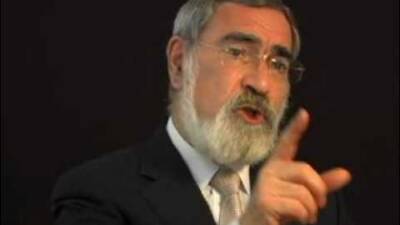
Rabbi Sacks on Free Will
JInsider (March 2010)
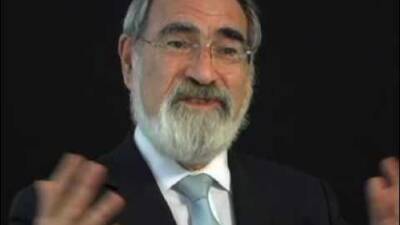
Rabbi Sacks on Family and Marriage
JInsider (March 2010)
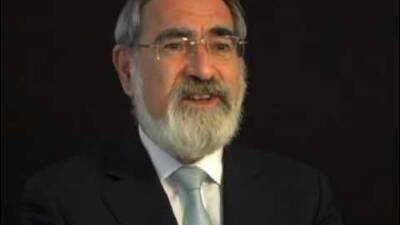
Rabbi Sacks on Tzedakah Defined
JInsider (March 2010)
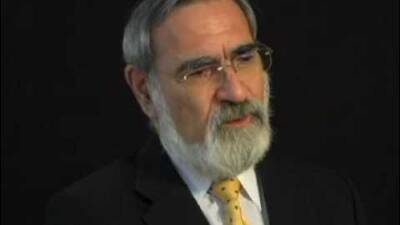
Rabbi Sacks on Daily Life
JInsider (March 2010)
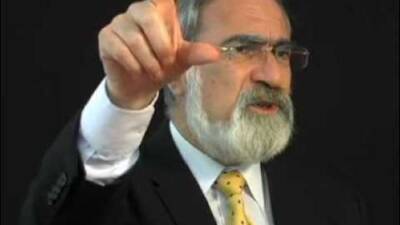
Rabbi Sacks on Being Jewish
JInsider (March 2010)
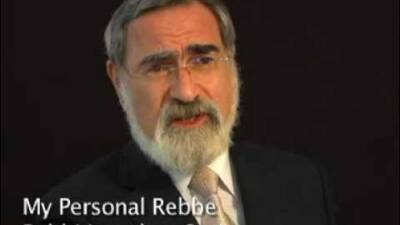
Rabbi Sacks on his Personal Rebbe, Rabbi Nachum Rabinovitch
JInsider (March 2010)
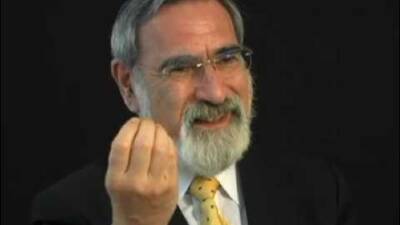
Rabbi Sacks on Connecting to God
JInsider (March 2010)
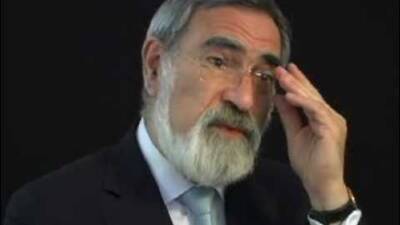
Rabbi Sacks on God and Evil
JInsider (March 2010)
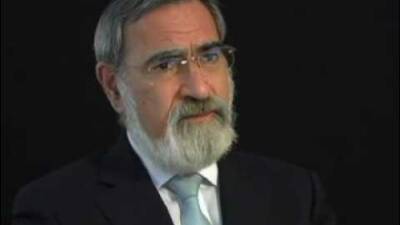
Rabbi Sacks on Dialogue with Atheists
JInsider (March 2010)
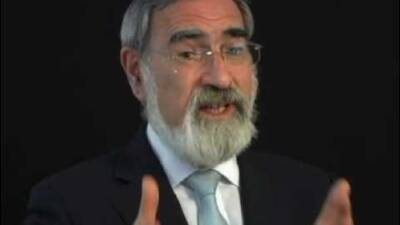
Rabbi Sacks on Doubt
Jinsider (March 2010)
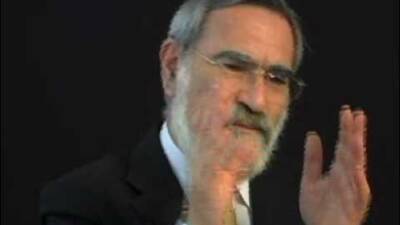
On Tikkun Olam
JInsider (March 2010)
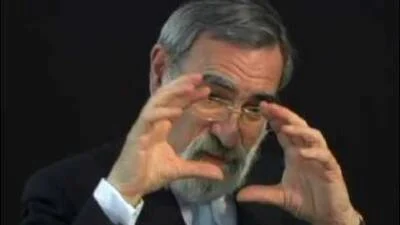
Rabbi Sacks on a Response to Atheism
JInsider (March 2010)
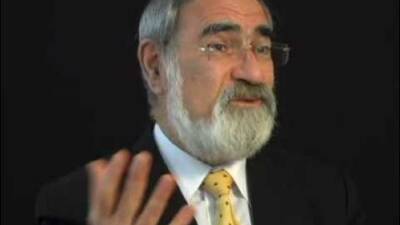
Rabbi Sacks on Finding Purpose
JInsider (March 2010)
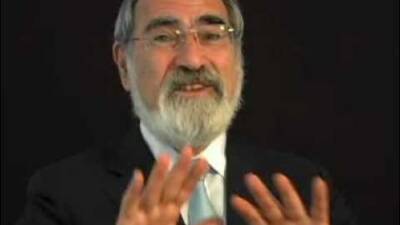
Rabbi Sacks on the Dignity of Difference - Part 2
JInsider (March 2010)
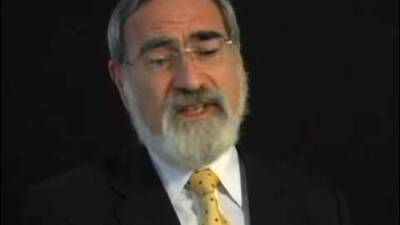
Rabbi Sacks on the Dignity of Difference - Part 1
JInsider (March 2010)
